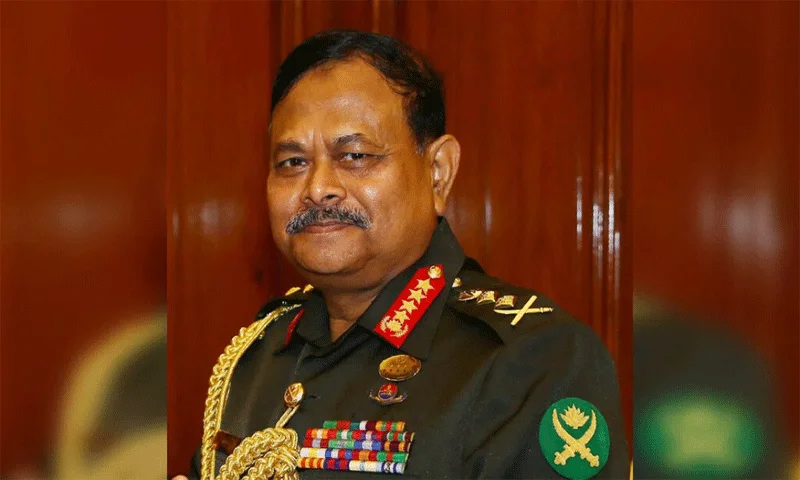Is America playing a ‘corruption’ card?
Share on:

First time any Bangladeshi has been publicly termed corrupt by US administration
The State Department on Monday publicly termed former Army chief General (Retd) Aziz Ahmed “corrupt” due to his involvement in significant corruption. They made the public announcement under Section 7031(c) of the Foreign Operations, and Related Programs Appropriations Act. This is the first time any Bangladeshi has been publicly termed a “corrupt” person by the US administration.
Before this, the US usually used “human rights” as a tool to take “penalty” measures against Bangladesh.
The US Treasury Department imposed sanctions against the elite force RAB (Rapid Action Battalion) and its former officials on December 10, 2021, due to their involvement in human rights abuse incidents. But this is the first time the State Department has used the “corruption” tool.
Former diplomats felt that the future use of the corruption tool would depend on American assessment, but it might have an impact on the Bangladesh-US relationship.
A former diplomat, wishing not to be named, said: “The State Department publicly declared about 500 individuals as corrupt in 60 countries during the last 15 years. They held different government positions, including president, minister, or bureaucrat.”
The publicly designated persons and their family members usually face one penalty, and that is a restriction on entering America, but it has a “political message”, he said.
“The State Department may declare the names of corrupt persons publicly or can keep it secret under the Appropriations Act. If they want to keep it secret, the Department only inform the designated persons. But, if their intention is to give a political message, they would usually make it public,” he added.
3 types of important persons
Depending on influence, any country has three types of important people. The first category is politicians and businesspersons; the second is civil or military bureaucrats; and the third is members of law-enforcement agencies. It is easier to label human rights violations as charges against law enforcement agency members.
Another former diplomat said: “Human rights issues are and were discussed during the bilateral discussions of the two countries. Even after the formation of RAB 20 years ago, the US side raised the human rights issue in different discussions on a regular basis. Not only that, in their different publications, like the Human Rights Report or their speeches, they consistently mention violations.”
He said that it is difficult to brand any person as corrupt. Say, for example, that human rights violation charges cannot be brought against an ordinary bureaucrat or businessperson.
“But the corruption charge can be put forward against any person. If the US administration decides to use corruption as a weapon, nobody is safe.”
Discussion on corruption
In the bilateral discussions between Bangladesh and America, corruption had never been an important agenda. But the US side recently showed interest in the issue.
State Department Global Anti-Corruption Coordinator Richard Nephew visited Dhaka last August and had meetings with Foreign Secretary Masud bin Momen, Anti-Corruption Commission Secretary Md Mahbub Hossain, and other government officials. They discussed potential bilateral cooperation to combat corruption, especially in the field of money laundering.
The former diplomat said: “My hunch is that the assessment to use corruption as a tool started before that, and now we are observing the manifestation.”
Political message
America is always vocal about civil liberty issues like democracy, rule of law, space for civil society, freedom of expression, freedom of assembly, and other issues.
Recently, State Department Assistant Secretary for South and Central Asia Donald Lu visited Dhaka, and in his interaction with the media, he said that there was “tension” between the two countries over the civil liberty issue. But they did not want to look back; rather, they wanted to look forward. But they would continue to discuss “hard issues”.
Another former diplomat said: “America did not change its position on civil liberty issues. Whatever they say in public, their core position remains the same.”
There needs to be more engagements at all levels, from top to bottom, as there is no alternative to discussion, he said, adding, “Bangladesh is concerned about American intentions. Similarly, the US administration also has concerns about the relationship that Bangladesh maintains with different countries, especially China.”
He said: “America is the number one power on the globe. They want to bring countries like Bangladesh under their sphere of influence, and it is not a secret. They expect predictable behaviour from Bangladesh.”
Bangladesh needs to find out the critical balance between America and China, and in this regard, Delhi can be a trusted partner of Dhaka, he added.

